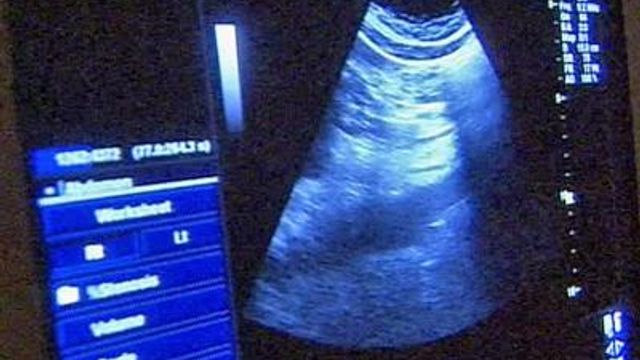Ultrasound helping to prevent kidney failure
An estimated 26 million Americans have chronic kidney disease. A simple, painless and non-invasive test can prevent kidney failure in those patients.
Posted — UpdatedWith ultrasound, a handheld transducer sends ultrasonic sound waves through the body. They bounces off tissues like an echo, creating an image that the trained eyes of technologists can recognize, measure and record.
“The resolution on ultrasound machines has really come (forward in) leaps and bounds,” radiology technologist Katie Chase, with Raleigh Radiology, said. “We look at the size and texture of the kidneys and make sure that there's no obstruction at all within the kidney."
The kidneys remove waste from the blood, producing urine. They help the body maintain a fluid balance and a balance of minerals, like salt and potassium.
A few cysts are fairly common for those 50 and older. Other exams like CT and MRI may offer more detailed pictures, but ultrasound costs much less.
It is effective in examining the thyroid gland, liver, gall bladder, heart and what we think of most commonly with ultrasound, unborn babies.
“It's non-invasive, there's no radiation. It's very well tolerated. Pretty much anybody who can hold still can have an ultrasound,” Dr. Gregory Hinn said.
While kidney ultrasounds are an effective, non-invasive way to look at the kidneys, they may not be as effective for patients who are obese.
• Credits
Copyright 2024 by Capitol Broadcasting Company. All rights reserved. This material may not be published, broadcast, rewritten or redistributed.





